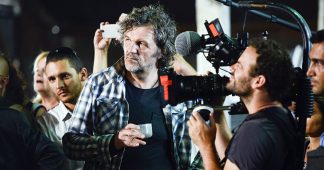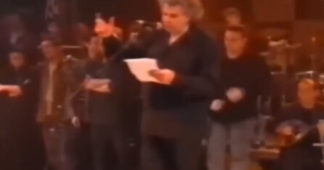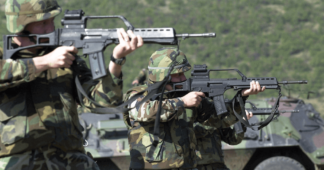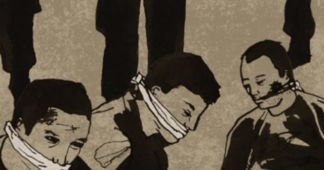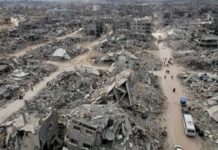The world is currently undergoing a “deconstruction of power” that believed itself to be supreme 23 years ago, the famous Serbian director told RT
The current conflict over Ukraine is essentially the aftermath of the NATO bombing of Yugoslavia in 1999, renowned Serbian filmmaker Emir Kusturica told RT on Tuesday, highlighting the continuity of Russophobia and the West’s contempt for the international law.
On March 24, 1999, NATO launched its air war against what was then the Federal Republic of Yugoslavia. The shelling continued for 78 days and ended with a negotiated armistice, allowing UN peacekeepers to enter the rebel province of Kosovo.
Because Russia was weak and ruled by “Western Oligarchy” supporting President Boris Yeltsin, Serbia was “absolutely alone” fighting for its freedom, borders and survival, Kusturica told RT from his home in Mecavnik.
It was “when international law was changed into what I call ‘humanitarian’ law”, said the filmmaker, alluding to NATO’s official reasoning that it was trying to stop a humanitarian catastrophe in Kosovo, and the subsequent doctrine of “responsibility to protect” created to justify war.
“This war did not come out of nowhere. It is the continuation of something that was sown much earlier,” said the director, referring to the current conflict over Ukraine. Kusturica sees a continuation of Russophobia in the West, which rejected Russia’s offer of partnership after the Cold War.
NATO claimed that the bombings had brought peace, but the only thing it accomplished was enabling the color revolution of October 2000, Kusturica noted. Yugoslav President Slobodan Milosevic was overthrown in what would become a pattern for two such revolts in Ukraine, first in 2004 and then in 2014.
Serbs are not pro-war, they just remember 1999 and understand the causes of the current conflict in Ukraine, Kusturica told RT.
“In a unipolar world, no one pays the price for [their] moves,” he underlined. “Now we’re dealing with the deconstruction of power in the world, and what matters, I think, at the end of the day is what kind of weapons you have.”
In 1999, Serbia did not have the most modern weapons – Yeltsin blocked the delivery of air defense systems that could have made more difference, Kusturica said. Even so, the Serbs managed to shoot down a US “stealth” bomber. They remember NATO “humanitarian” bombs still today, he added.
“They never came to the field, because they know how the Serbian people fight,” pointed out Kusturica.
Yugoslavia came to an end in 2006, when Montenegro declared its independence. The ethnic Albanian interim government in Kosovo – backed by NATO – did so in 2008, but without recognition from Belgrade. Serbia is now a “Isle” in a sea of NATO states on almost all sides. Yet it is still a place where not all media is under Western control, and one can still speak out against injustice and censorship, Kusturica said.
He condemned what he called “Almost Incredibly Satanic Version of Cancel Culture” which now bans Russian conductors, composers and authors, stopping just short of burning books in city squares as the Nazis did.
Russian authors love “Chekhov, Pushkin, Dostoyevsky, Tolstoy are inseparable from what we call European culture”, said Kusturica, arguing that the West is now trying to cut them off, but the world will “eventually seeing these pieces put together.”
Born in what is now Bosnia and Herzegovina, Kusturica made his feature debut in 1981, making a string of award-winning features and also dabbling in acting, music and writing. He resides in an ethnic-themed village in western Serbia, originally built as the setting for his 2003 film “Life is a Miracle.”
RT
We remind our readers that publication of articles on our site does not mean that we agree with what is written. Our policy is to publish anything which we consider of interest, so as to assist our readers in forming their opinions. Sometimes we even publish articles with which we totally disagree, since we believe it is important for our readers to be informed on as wide a spectrum of views as possible.
